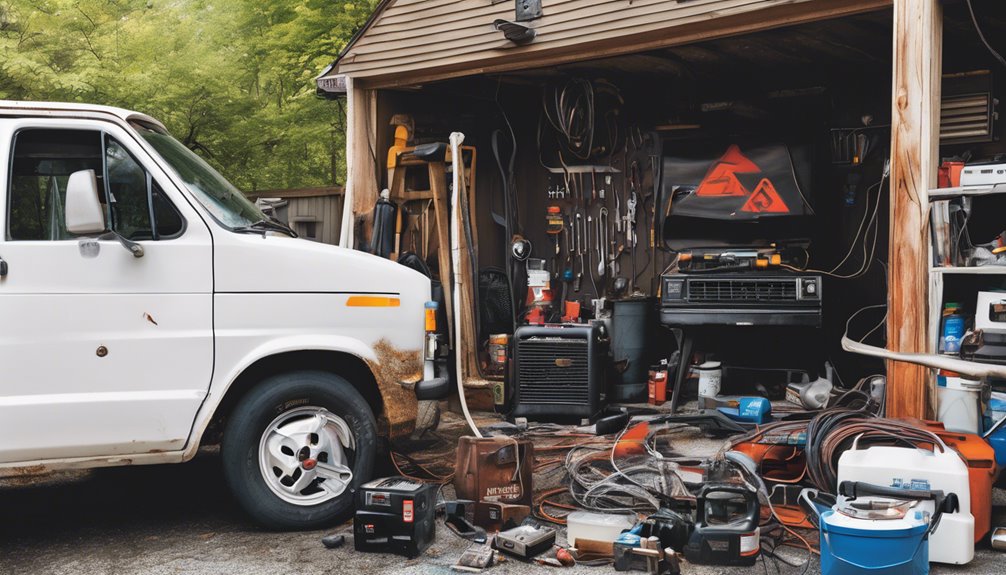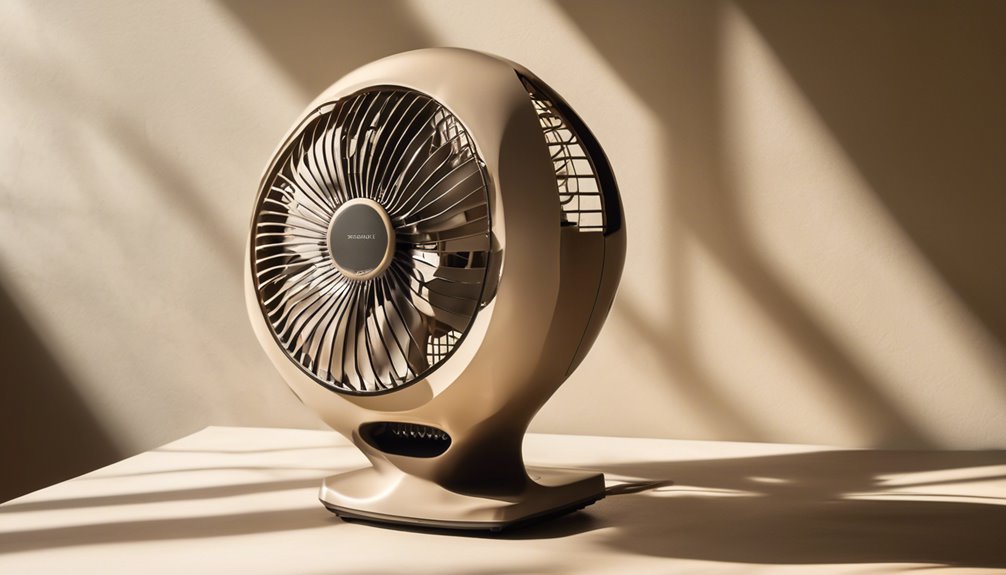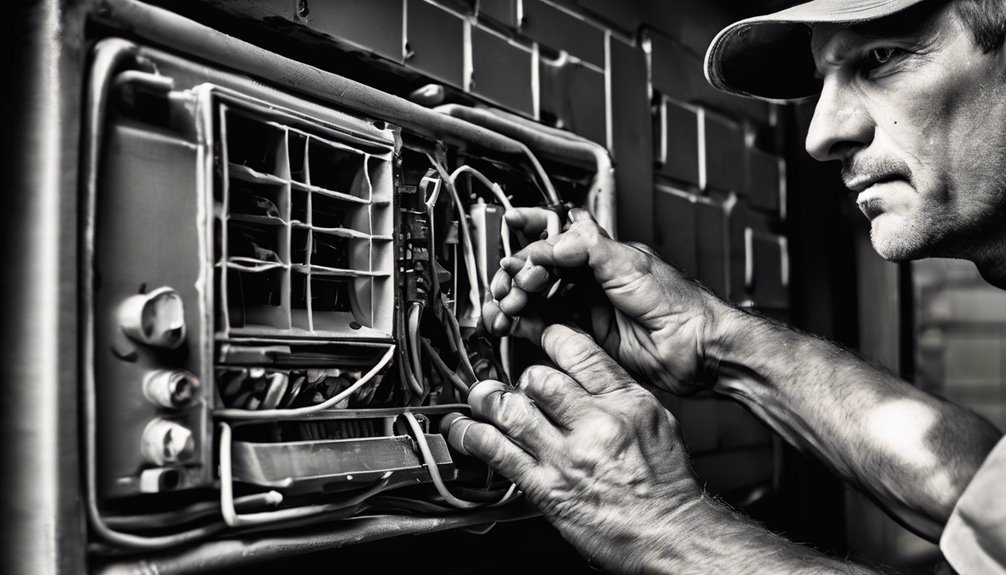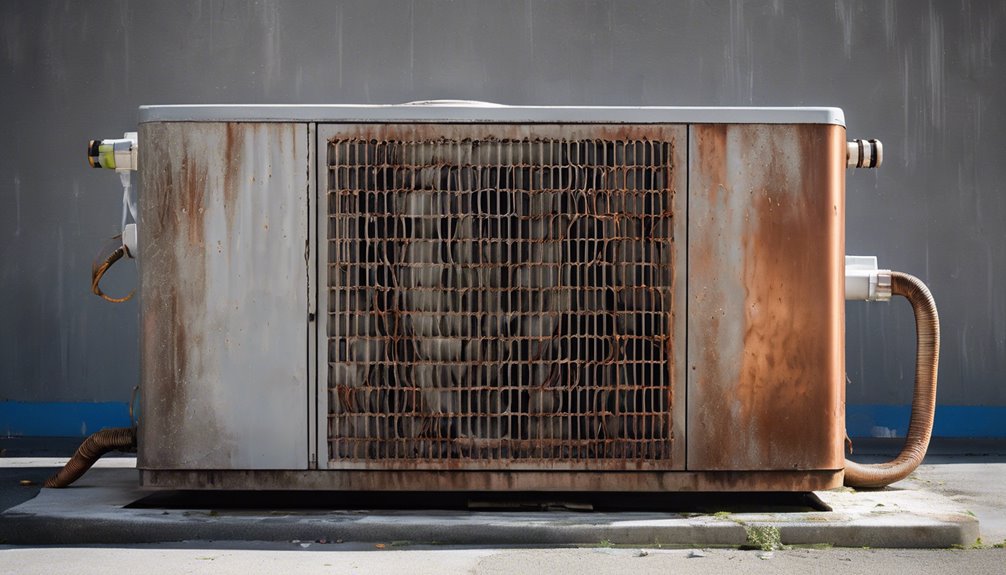As you weigh DIY AC maintenance against professional service, consider the cost savings against the risks of incorrect diagnosis or repair. While DIY maintenance can save you money, it may lead to costly repairs or system failure if done incorrectly. On the other hand, expert diagnosis and repair can prevent issues from arising, ensuring optimal performance and safety. If you're unsure where to start, exploring the benefits and limitations of each approach can help you make an informed decision about how to keep your AC unit running smoothly.
Key Takeaways
- DIY AC maintenance can save money and time, but improper repairs can lead to costly problems and safety risks, making professional service a better option for complex issues.
- Tasks like replacing air filters and coil cleaning can be safely done DIY, but refrigerant leaks and electrical problems require expert handling.
- Weighing the risks and benefits of DIY maintenance helps make an informed decision, considering factors like cost, time, and expertise.
- Professional diagnosis and repair can prevent nearly 75% of all AC repairs, extending the unit's life and saving money in the long run.
- Optimal AC performance and safety are ensured through proper maintenance, which promotes energy efficiency, reduces electricity bills, and improves indoor air quality.
Weighing the Risks and Benefits
So, are you considering DIY AC maintenance?
Before you start, it's essential to weigh the risks and benefits. On the one hand, DIY maintenance can save you money on labor costs, which is a significant consideration, especially if you're on a tight budget.
Additionally, you can avoid waiting for a technician to arrive, which can be a huge plus if you're dealing with time constraints.
On the other hand, if you're not familiar with AC systems, you might end up causing more harm than good, leading to costly repairs or even system failure.
Weighing these cost considerations and potential risks will help you make an informed decision about whether DIY AC maintenance is right for you.
Identifying Tasks for DIY Maintenance
If you've decided DIY AC maintenance is right for you, the next step is to identify the tasks you can safely tackle on your own.
You'll want to focus on routine maintenance tasks that don't require specialized tools or expertise.
- Replacing the air filter: This is a simple but crucial task that can improve your AC's efficiency and indoor air quality.
- Coil cleaning: Cleaning your AC's condenser coils can help reduce energy consumption and prevent breakdowns.
- Checking and topping off refrigerant: If you're comfortable with basic refrigerant handling, you can check your AC's refrigerant levels and top them off as needed.
When to Call in the Professionals
While you can handle some AC maintenance tasks on your own, there are situations where it's better to call in a professional.
If you're unsure about performing a specific task or if you're not comfortable with heights or electrical work, it's best to leave it to the experts.
Additionally, if you're dealing with complex issues like refrigerant leaks or electrical problems, you should call a professional to avoid further damage or safety risks.
Cost considerations also come into play, as improper DIY repairs can lead to more expensive problems down the line.
Furthermore, insurance implications may arise if you attempt to fix your AC unit yourself and cause more damage, potentially voiding your warranty.
In these cases, it's better to invest in professional service to ensure your safety and the longevity of your AC unit.
Expert Diagnosis and Repair
Nearly 75% of all AC repairs can be attributed to poor maintenance, and expert diagnosis and repair can help prevent these issues from arising in the first place.
By hiring a professional to diagnose and repair your AC unit, you can avoid costly repairs down the line. They'll conduct thorough system checks to identify potential problems before they become major issues.
- Accurate diagnosis: A professional can pinpoint the exact problem, ensuring the right repairs are made the first time around.
- Cost savings: Catching issues early on can help you avoid expensive repairs or even replacement of your AC unit.
- Preventative maintenance: Expert diagnosis and repair can help extend the life of your AC unit, saving you money in the long run.
Optimal Performance and Safety
By ensuring your AC unit is properly maintained, you can enjoy optimal performance and safety.
A well-maintained AC unit consumes less energy, reducing your electricity bills and promoting energy efficiency.
Proper AC maintenance slashes energy consumption, leading to lower electricity bills and a more energy-efficient home.
Regular filter replacements, in particular, play a crucial role in maintaining filter quality.
A clean filter allows for smooth airflow, preventing overheating and reducing the risk of breakdowns.
Moreover, a clean filter also improves indoor air quality, ensuring you breathe in fresh and healthy air.
Frequently Asked Questions
Can I Perform DIY Maintenance on a Leased or Rented Property?
Before attempting DIY maintenance, you should review your lease agreement for restrictions and obtain your landlord's permission, ensuring you're not violating any terms and avoiding potential penalties or liabilities.
Will DIY Maintenance Void My Ac's Warranty?
When you perform maintenance on your AC, you risk voiding the warranty if you don't follow the manufacturer's specifications. Check your warranty terms to ensure you're complying, as failing to do so can result in a voided warranty, leaving you with costly repairs.
How Often Should I Clean My Ac's Condenser Coils?
You should clean your AC's condenser coils every 1-3 months, depending on usage and environment. Create a coil cleaning schedule to ensure regular outdoor unit inspections, which can help improve efficiency and prevent breakdowns.
Can I Use a Regular Vacuum to Clean AC Vents?
You can't use a regular vacuum to clean AC vents, as it may push debris further in, reducing air flow. Instead, use a soft-bristled brush or a specialized vent cleaning tool to gently remove dust and dirt, ensuring improved air flow and system efficiency.
Do I Need to Shut off the Power Before DIY Maintenance?
When working on your AC, you'll want to ensure power safety by shutting off the main switch before starting any DIY maintenance, taking necessary electrical precautions to avoid shocks or electrical fires.
Conclusion
You've weighed the risks and benefits of DIY AC maintenance versus professional service. While DIY tasks can save you money, they can also lead to further damage or even safety hazards. Knowing when to call in the pros is crucial. By leaving complex repairs to the experts, you'll ensure optimal performance, safety, and a longer lifespan for your AC unit.



